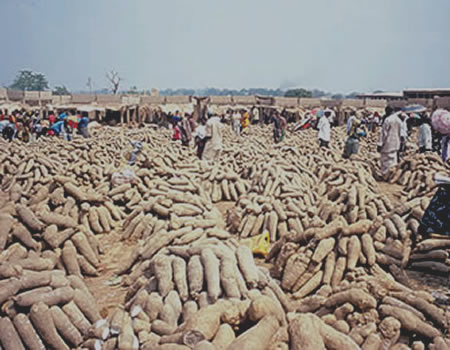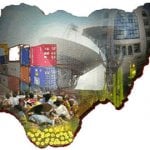Acting President of the association, Professor Simon Irtwange, told journalists in Abuja that the Act negated the diversification efforts and policies of the Federal Government.
Irtwange, who is also the chairman of the Technical Committee on Nigeria Yam Export Programme, said the Act was discouraging yam exporters from conducting their business freely and coming out openly with yam export figures.
According to him, the Act prohibits the export of five agricultural produce, which includes beans, cassava tuber, maize, rice, yam tuber and their derivatives
“The Export Prohibition Act is a big problem to us; it is difficult to come open with numbers when we know that there is a law on ground clearly prohibiting export of yams and its derivatives.
“The dilemma now is that you have a government policy encouraging export of agricultural produce but the Act is against it.
“There was an NGO that wanted to give us support and invest in the yam value chain, but as soon as they saw the law, they withdrew because these foreign organisations cannot support what Nigeria has prohibited,” he said.
He explained that only export potential could drive production, adding that the Act was capable of discouraging production of yams across the country.
“This yam export initiative serves as an incentive to farmers to drive production and once you open the commodity for export, you find that more people will go into production.
“Farmers produce for food security and also for export, but as it is now, there is no incentive for farmers to go and produce large quantity of yams,’’ he said.
The Act, which took effect from February 1989, stipulates that any person, who takes, causes to be taken, induces any other person to take, or attempts to take out of Nigeria, any of the goods specified, shall be guilty of an offence and liable on conviction to imprisonment for life.
In addition to the penalty, the goods, as well as any vehicle, vessel, aircraft or other thing whatsoever used in connection with the exportation, and all the assets, movable or immovable, including motor vehicles, of any person convicted of the offence shall be forfeited to the Federal Government.






